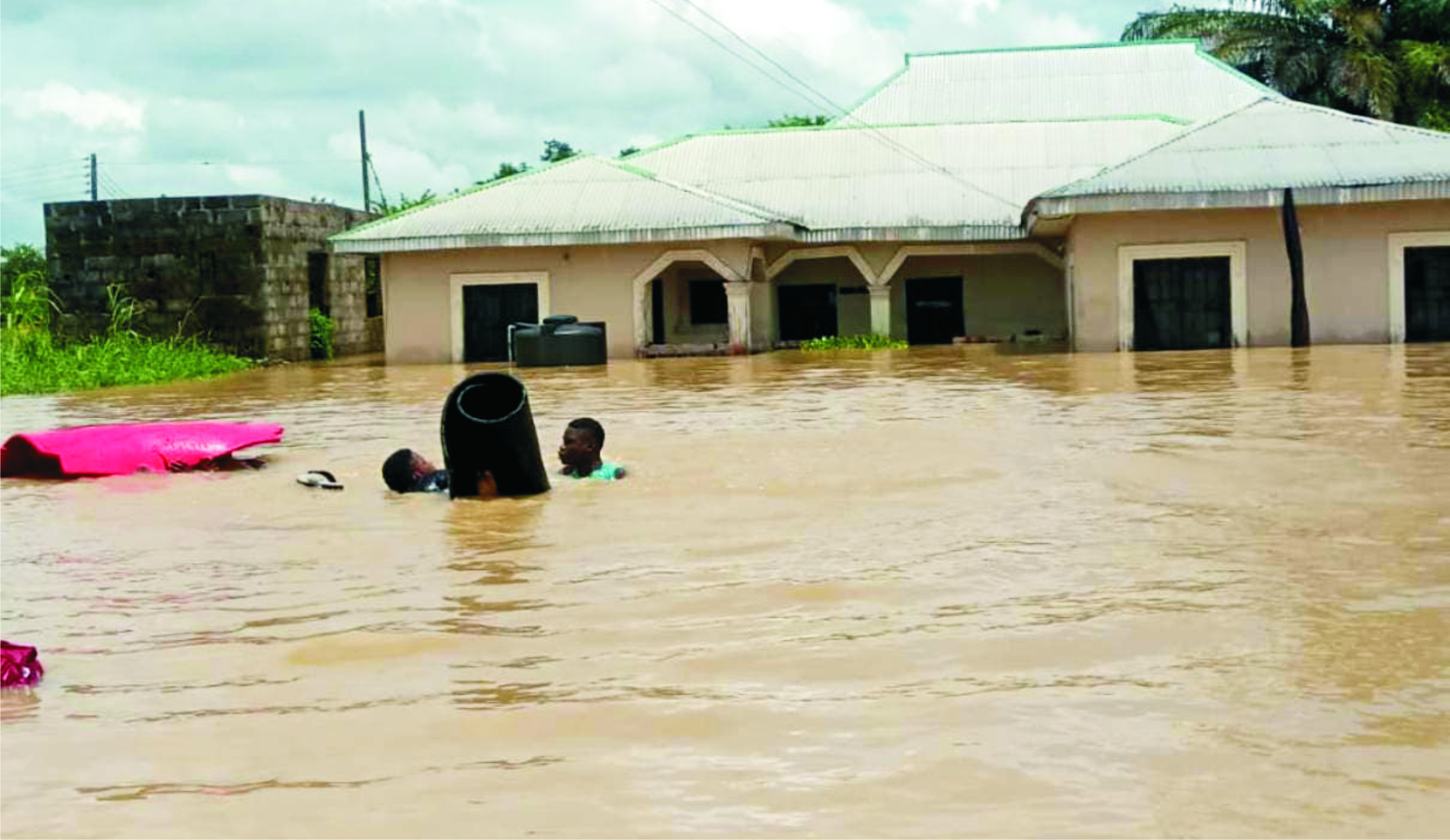Editorial
Flood Victims: Wike’s Donation Timely

Following the devastation that the current floods have been wreaking in Rivers State and across Nigeria,
Governor Nyesom Wike has approved N1 billion for emergency relief measures to support flood victims, especially in Ahoada West and Ogba/Egbema/Ndoni Local Government Areas of the state. Consequently, the governor set up a taskforce to coordinate the distribution of relief materials to affected communities.
The Permanent Secretary, Special Services Bureau in the Office of the Secretary to the Rivers State Government, Dr George Nwaeke, is the chairman of the taskforce, while Mrs Inime Aguma is the Secretary. Other members are the Chairman of Ahoada West, Hon. Hope Ikiriko; Chairman of Ogba/Egbema/Ndoni, Hon. Vincent Job; and the Director of Administration in the Ministry of Special Duties, Hon. Chukwuemeka Onowu.
Governor Wike’s timely intervention will unarguably not end the flooding, but it will go a long way to provide succour to the victims. He deserves some dithyramb. No doubt, the money will go a long way towards tackling the flood challenge. This gesture of empathy is a demonstration of the administration’s humane and effective hallmarks. Individuals, corporates, and stakeholders should replicate the same by providing support in the form of urgent humanitarian relief for affected people.
Expectedly, members of the taskforce should hit the ground running because the assignment is pressing and colossal. They have to identify and inspect areas ravaged by flood, as well as provide succour to victims. They should pinpoint the real victims, relocate them to higher grounds and provide relief materials. Likewise, they must shun corruption and make judicious utilisation of the funds to mollify the people’s suffering.
Local government councils should band together and tackle the flood imminence in their localities. Each local government area should set aside momentous funds from their monthly allocations for dealing with the flood situation. The Rivers State Government should take necessary actions to put permanent plans in place to deal with the flooding, which has become an annual nightmare for Nigeria.
One of the measures is setting up a State Emergency Management Agency (SEMA). The absence of SEMA is affecting the management of disasters in the state. If established, the agency will be saddled with the responsibility of providing relief to victims, as a result of the consequences of such apocalypse. It will equally work together with the National Emergency Management Agency (NEMA) to manage disaster victims professionally.
More than 600 people have died in the worst flooding Nigeria has seen in a decade. Some 1.3 million people have been displaced, and more than 200,000 homes have been destroyed. The Federal Government has said unusual heavy rains and climate change are to blame. The emergency release of excess water from dams in Nigeria and neighbouring Cameroon is another key factor causing annihilatory flooding.
As several Nigerian states suffer immense flood tide, the question of why and what to do about it has become importunate. The headlines are brutal: “hundreds killed”; “hundreds of towns and villages nationwide submerged or destroyed”; “hundreds of thousands of homes damaged”; among others. But the government’s response at the federal and state levels has always remained the same. Billions of Naira are mentioned in humanitarian response, thereafter all goes quiet until it occurs again.
While the Federal Government should step in to directly address national emergencies, local governments and the states are the first responders in all situations. The lives and properties of Nigerians are at stake. Governors of those states that have swung into action should continue with their efforts, but those that have not should instantly face their duties of managing the floods within their jurisdictions. That is what they have been elected to do.
Unfortunately, enlightenment on public safety is not taken seriously in Nigeria until tragedy strikes; otherwise, the lessons of the 2012 flooding would have been enough for those at risk to take adequate precautions. However, the appropriate government agencies should act fast now to contain the worsening flooding catastrophe in the country.
Though we may have little or no control over rivers that burst their banks or other causes of the perennial alluvion, embracing appropriate environmental management, town planning, and enforcement of rules will certainly mitigate the impact of flooding that results from heavy rainfall or the release of water from dams in Cameroon or Nigeria. Regrettably, this is not the case in many states.
Most drainage channels in the metropolis have been blocked due to the indiscriminate discharge of refuse into them. Houses are illegally built on such corridors, while land reclamation is carried out with reckless abandon. These barriers to rainwater flow are recipes for disaster. Hence, the environmental authorities need to be aggressive in the dredging of canals and clearance of the drainage.
Since the flooding began, large swathes of farmlands have been destroyed. There are concerns about the increased spread of diseases, and food and fuel supplies have also been disrupted. Nigeria’s meteorological agency has warned that the flooding could continue until the end of November in some states in the south of the country, including Anambra, Delta, Rivers, Cross River and Bayelsa.
There has to be a flood management policy in Nigeria. The lack of relevant legal and policy frameworks is an indication of the low significance given to controlling and managing flooding in the country. Furthermore, the Federal Government should dredge the Rivers Niger and Benue since all the other rivers in the hinterland flow into them. It is time to pay equal attention to our waterways the way our roads are rehabilitated and reconstructed. This will free both rivers of all barriers along their way.
Editorial
Beginning A New Dawn At RSNC

Editorial
Sustaining OBALGA’s Ban On Street Trading

Editorial
AFCON ’25: Bravo, Super Eagles, But…


